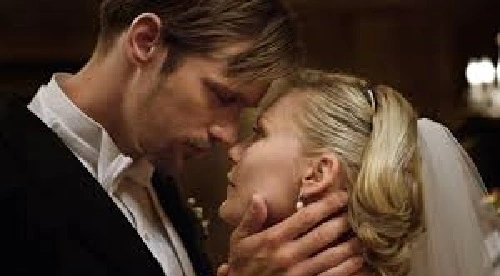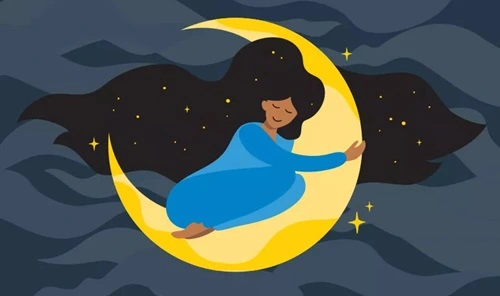Lars von Trier’s 2011 psychological drama Melancholia is a visually stunning and emotionally intense film that explores themes of depression, existential despair, and the end of the world. One of the most poignant moments in the film is when Michael, played by Alexander Skarsgård, leaves Justine (Kirsten Dunst) on their wedding night. This moment is not just a dramatic plot twist but a significant commentary on the fragility of relationships, the burden of mental illness, and the contrast between external optimism and internal despair.
Justine’s Struggles with Depression

At the core of Melancholia is Justine’s deep depression, which is evident from the very beginning of the film. Though she initially tries to play the role of a happy bride, it quickly becomes clear that she is suffering from an overwhelming sadness that she cannot control. Throughout the wedding reception, she isolates herself, struggles to engage with guests, and ultimately withdraws completely from the celebratory atmosphere.
Michael, on the other hand, represents a kind of naive optimism. He genuinely loves Justine and envisions a happy future with her, but he fails to understand the depth of her condition. He believes that love and companionship can “fix” her, but when faced with the reality of her mental state, he finds himself unprepared and unable to cope.
Michael’s Idealism vs. Justine’s Reality
Michael is portrayed as a hopeful and patient man who wants to support Justine. He expresses his devotion to her throughout the wedding, even when she disappears at times and behaves erratically. However, as the evening unfolds, he begins to realize that Justine is not just having an off day—she is fundamentally disconnected from the joy and meaning of the occasion.
In contrast, Justine is trapped in her own internal despair. Depression, as depicted in Melancholia, is not something that can be easily remedied with love and support alone. It is an all-consuming state that renders her unable to meet the expectations of marriage or even basic social interactions. This becomes painfully clear when Justine pulls away from Michael both emotionally and physically.
The Wedding Night Breakdown
The breaking point comes when Justine, overwhelmed by her emotions, openly sabotages the wedding. She lashes out at her boss, quits her job, and disappears from the reception for long stretches. Most notably, she engages in an affair with another man on the same night, further emphasizing her detachment from Michael and the traditional expectations of marriage.
This act is not one of malice but of self-destruction—Justine is spiraling, and Michael is unable to pull her back. For him, this moment marks the realization that the woman he thought he married is beyond his reach. He had envisioned a stable and loving future, but the events of the wedding night make it clear that Justine is neither ready nor capable of being a part of that future.
Michael’s Departure: A Symbol of Disillusionment
Michael’s decision to leave is heartbreaking but inevitable. In the face of Justine’s emotional collapse, he recognizes that their marriage cannot work. His departure is not just a rejection of Justine but a concession to reality—he cannot save her, and he cannot be part of her world.
This moment also underscores one of Melancholia’s central themes: the contrast between those who accept despair and those who resist it. Justine, despite her suffering, ultimately finds a sense of peace as the world faces destruction, while Michael—like many others—cannot comprehend or cope with such deep existential dread.
Conclusion
Michael’s departure in Melancholia is a tragic but necessary moment in the film. It highlights the limits of love in the face of mental illness and existential despair. While he starts out as a loving and devoted husband, he ultimately cannot endure Justine’s detachment and self-destruction. His leaving is not an act of cruelty but a recognition of an unbridgeable divide between them.
In the end, Melancholia presents a bleak but profound meditation on human relationships, mental illness, and the inevitability of destruction—whether personal or cosmic. Michael’s exit serves as a reminder that not all love stories have happy endings, especially when one person is fighting battles that the other cannot understand.


